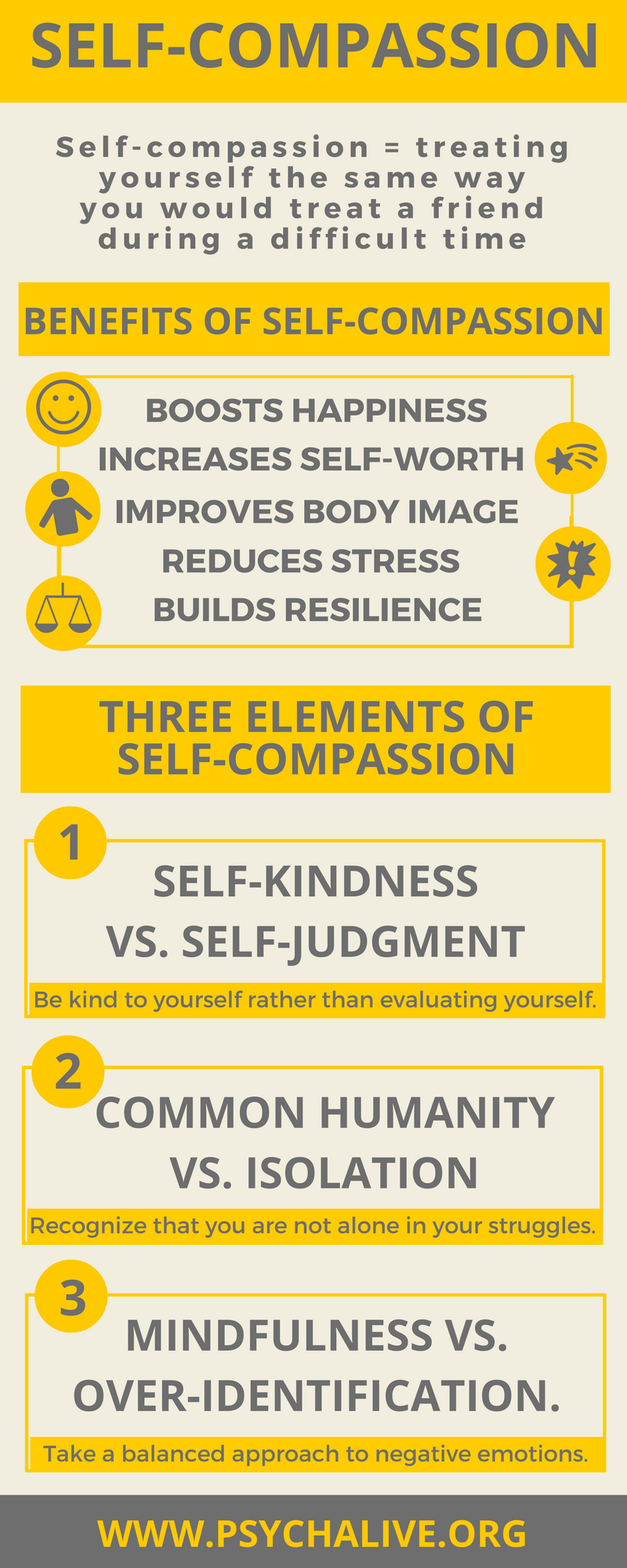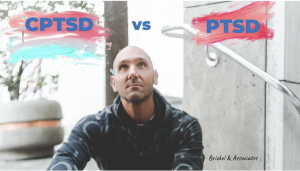The Many Benefits Of Self-Compassion
 Our sense of self is often a divided thing. Most of us have a side in us that is “on our own team.” It encourages and supports us. It helps us fight for what we want and believes in what we can achieve. However, there is often an opposite force in each of us that is pretty much our worst enemy. It insults, critiques, questions, and undermines us. It keeps us from pursuing our goals and punishes us for our mistakes. This is the side of us that my father, Dr. Robert Firestone has called the “anti-self.”
Our sense of self is often a divided thing. Most of us have a side in us that is “on our own team.” It encourages and supports us. It helps us fight for what we want and believes in what we can achieve. However, there is often an opposite force in each of us that is pretty much our worst enemy. It insults, critiques, questions, and undermines us. It keeps us from pursuing our goals and punishes us for our mistakes. This is the side of us that my father, Dr. Robert Firestone has called the “anti-self.”In my and my father’s work, we often talk about how and why this anti-self emerges and how to challenge the negative line of thinking it perpetuates, which we call the “critical inner voice.” One exercise we ask people to try is writing down their self-critical thoughts in the second person (i.e. “You are such a loser. You can’t get anything right.”) We then suggest people write down a more realistic and compassionate response to these thoughts, the way one might respond to a friend saying these things about themselves. We ask that people write these statements in the first person (i.e. I am not a loser. I have many strengths, and I don’t have to beat myself up when I make a mistake.”)
The second part of this exercise can be very challenging and unexpectedly emotional for people. It’s often difficult to stand up to our critical inner voices; particularly when so many of us struggle with low self-esteem. Input from others is often perceived as additional criticism, and can trigger us and set off even more critical inner voices; our responses may range from being victimized or overly defensive to exaggerating and needing to build ourselves up. The attitude we need to adopt in order to stand up to our inner critic is one that is scientifically proven to be highly beneficial to our overall mental health and well-being. That attitude is self-compassion.
Dr. Kristin Neff is a leading researcher on self-compassion. This November, I’ll have the honor of speaking to Dr. Neff in a one-hour Webinar about her extensive findings on the many benefits of self-compassion, some of which I will highlight in this blog. Dr. Neff’s research has shown that, in many ways, self-compassion is more beneficial than self-esteem to our psychological well-being. In comparison to self-esteem, self-compassion is associated with “greater emotional resilience, more accurate self-concepts, more caring relationship behavior, as well as less narcissism and reactive anger.” Unlike self-esteem, self-compassion is not based on self-evaluation or judgment in general. Self-esteem can be problematic, because it’s often contingent on what we accomplish. It can rise and fall with our successes and failures and provide just the fuel we need to rev up our critical inner voice. In contrast, self-compassion involves a consistent attitude of kindness and acceptance toward ourselves as a whole. As Dr. Neff writes, “People feel compassion for themselves, because all human beings deserve compassion and understanding, not because they possess some particular set of traits.”
According to Dr. Neff, self-compassion involves three main elements:
- Self-kindness Vs. Self-judgment
- Mindfulness Vs. Over-identification with thoughts
- Common humanity Vs. Isolation
Adopting these attitudes leads to many rewards. By fostering self-kindness, we can steer away from judging ourselves too harshly, and we can return to this attitude any time life doesn’t go exactly our way. “We can’t always get what we want. We can’t always be who we want to be,” said Dr. Neff. “When this reality is denied or resisted, suffering arises in the form of stress, frustration and self-criticism. When this reality is accepted with benevolence, however, we generate positive emotions of kindness and care that help us cope.”
By practicing mindfulness, we reduce our tendency to ruminate on problems or negative forms of thinking that are not conducive to real growth or change. The practice of self-compassion can help us avoid the trappings of the self-limiting or destructive thought processes, like the critical inner voice, that often diminish our motivation or initiative. Dr. Neff’s findings show that self-compassion can reduce anxiety and actually help us to make real changes in our lives.
Finally, by promoting a sense of common humanity, we can stop seeing ourselves from a victimized or narcissistic vantage point. Instead we can accept the reality described by Dr. Neff:
All humans suffer. The very definition of being ‘human’ means that one is mortal, vulnerable and imperfect. Therefore, self-compassion involves recognizing that suffering and personal inadequacy is part of the shared human experience — something that we all go through rather than being something that happens to ‘me’ alone.
The rewards of self-compassion are so extensive and can be explored in greater detail in Dr. Neff’s book, Self-Compassion. Some of Dr. Neff’s key findings show that self-compassion has a significant positive association with:
- Happiness
- Optimism
- Positive affect
- Wisdom
- Personal initiative
- Curiosity and exploration
- Agreeableness
- Conscientiousness
- Extroversion
In each of our lifetimes, we will be faced with struggles, big and small, internal and external. The pursuit of self-compassion allows us to face these obstacles with a sense that, not only are we on our own team, but we are very much a part of a larger team. We can have feeling for our inherent value, while addressing the things we seek to change. We can learn to tune out the critical inner voice that holds us back and establish a healthy and authentic sense of self.
Learn more about “Self-Compassion,” a Webinar with Dr. Kristin Neff.









Thanks
A very positive article. Definitely a must read. Thank you for sharing. Sending you all blessings always.
[…] the most valuable thing you can do for yourself and your family at this time is to practice self-compassion. Self-compassion has three […]